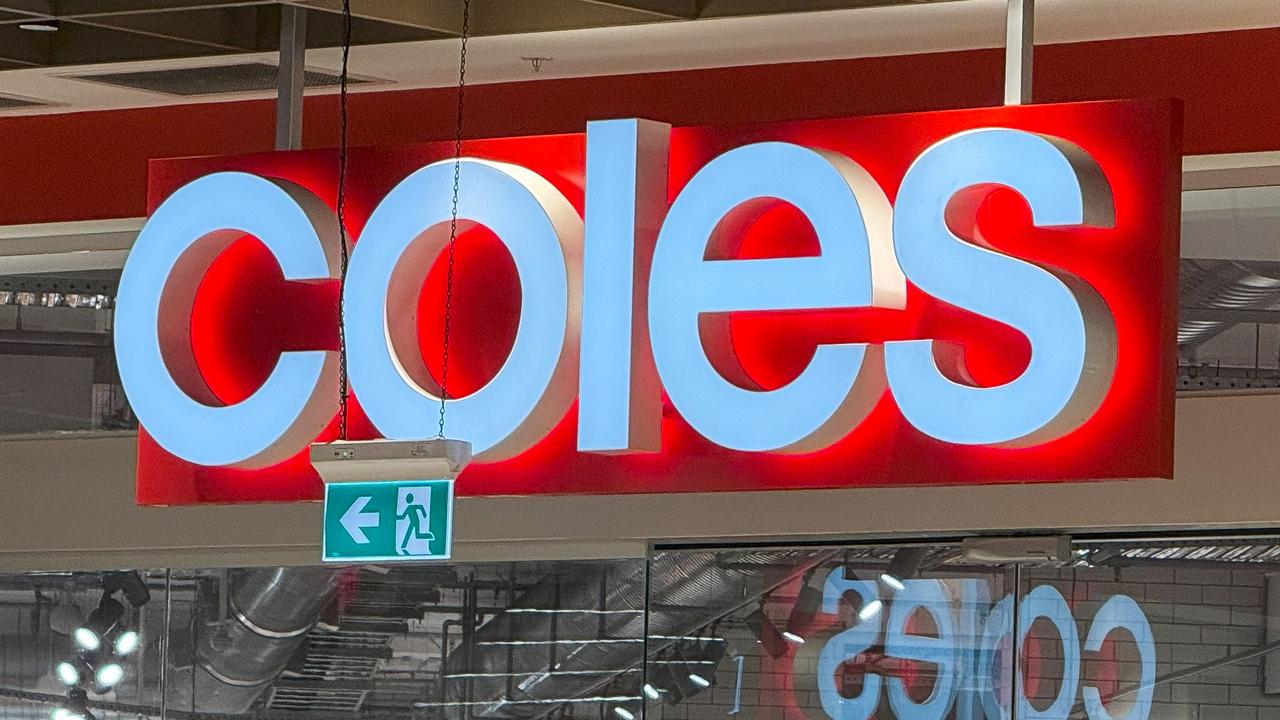‘Fed up’: Farmer abandons 80-acre zucchini crop blaming high mark-ups at supermarkets
A “fed up” Victorian farmer has blamed supermarkets charging shoppers too much for vegetables for his decision to “walk away” from a massive crop worth $2 million.
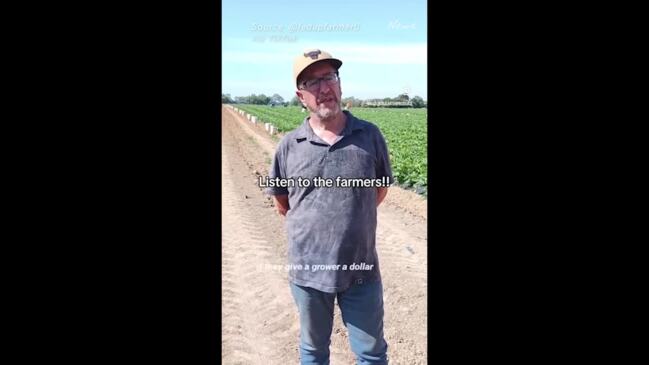
A “fed up” Victorian farmer has called on the major supermarkets to drastically lower their prices for fruit and vegetables, claiming profit-gouging is hurting consumers struggling with cost-of-living and driving growers out of business.
Ross Marsolino from Natural Earth Produce, a zucchini, tomato and eggplant producer in Victoria’s Goulburn Valley, said in a viral video posted to social media on Sunday that he was planning to “walk away” from an 80-acre zucchini crop.
“We’re going to walk away from 80 acres today,” he said.
“Mate, we’re not retailing the right price to be able to keep the product moving and selling. Plain and simple. The supermarkets are making too much profit out of our crops. We can’t survive. As growers we can’t afford to pay the workers, 50 people are going to be out of the system looking for work.”
Mr Marsolino told news.com.au he had made the “heartbreaking” decision to walk away from so much stock — which he estimated would be worth at least $2 million — because the economics simply didn’t stack up.
“I’ve been doing this since I was 19, I’m just fed up,” he said.
“I was a wholesale merchant for 16 years, now I’m at the other end of the scale as a farmer. I know how they operate.
“The problem we face is all the major supermarkets, they’re retailing too dearly. They purchase the product for $1.80 a kilo and retail for $4.99 — it’s too much mark-up. Fruit and veg is the biggest mark-up in the supermarket there is, whether it’s brussels sprouts, cabbage, cauliflower, zucchini, capsicum.”
If his zucchinis were sold at the “right price” of $2.99, he argued, “consumers will walk into the store, look at that zucchini and say that is my veg on the plate this week”.
“[The supermarkets] are not retailing for low enough for what they’re paying [the growers] to keep the commodity moving.”
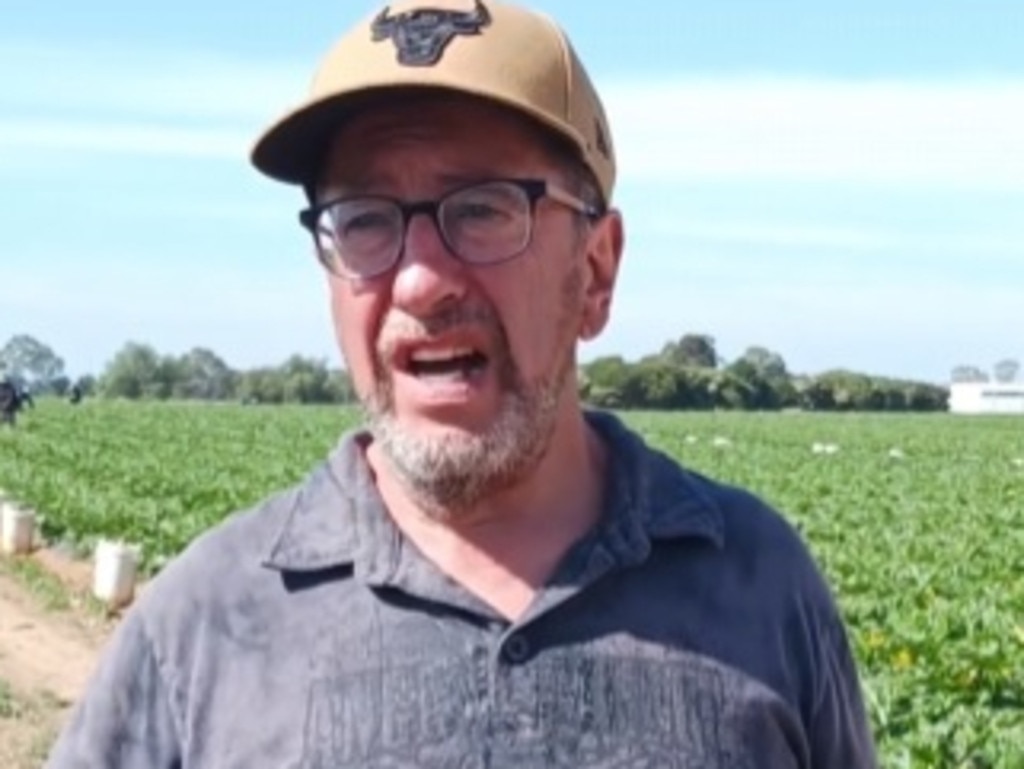
The effect of that, he argued, was less product overall being sold, meaning growers can’t offload their entire crops.
“There’s nothing worse than when you grow a crop, the crop’s magnificent, and you just can’t sell the product,” he said.
“We’re equipped to harvest and pack 6000 cartons a day, 60 tonnes of zucchini, but we’re doing 1000 boxes a day because we can’t afford to put the pickers out there. I can flood the market, pack 6000 a day, seven days a week — and lose $100,000 a week.”
Mr Marsolino said he wanted the government to look at the issue.
It comes after the supermarkets came under fire earlier this month for high red meat retail prices, in contrast with falling livestock prices.
Federal Agriculture Minister Murray Watt told an industry conference that consumers were “understandably asking why there is still such a discrepancy” and said “issues like that are exactly what will be considered in the government’s recently announced review into the food and grocery code of conduct,” Beef Central reported.
“All I want is a minister or somebody to say we’re looking at it,” Mr Marsolino said.
“I’m controlled in how I run my business. There should be somebody saying [to the supermarkets], ‘Show us your books. If you’re paying $1.80 for that veg, why are you retailing for $4.99?’”
Although Mr Marsolino sells to the supermarkets indirectly through a wholesaler, he argues “you’ve got to blame the chains because they rule the roost, they control the whole retail industry, they’ve got most of the market share”.
Jolyon Burnett, chair of the National Farmers’ Federation Horticulture Council, said fruit, vegetable, nut and nursery growers “continue to witness high and increasing costs, including fuel, labour and interest payments”.
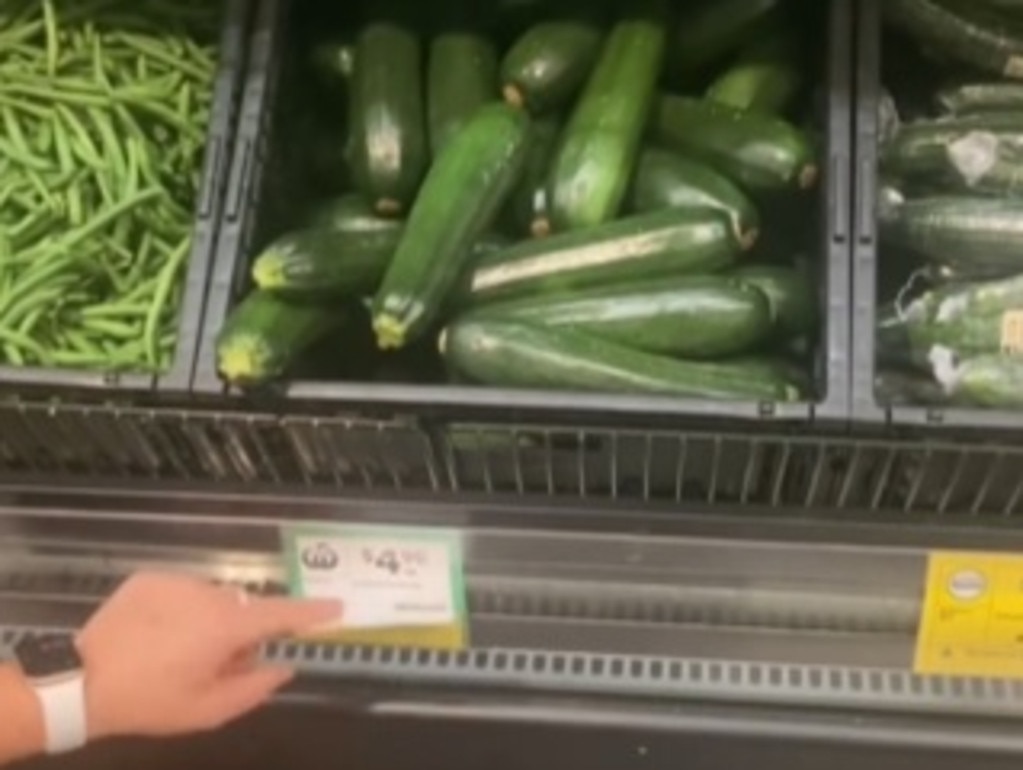
“Favourable growing conditions have resulted in strong supply of many commodities,” he said.
“These two things together mean growers aren’t getting rewarded for their hard work in a way that compensates for the extra costs of production. Times aren’t great for fruit, vegetable, nut and nursery growers at the moment. Profits in this sector are always tight, and prices are not keeping pace with what consumers have seen in the grocery aisle.”
Mr Burnett added growers would always benefit, including through better prices, from increased competition at the retail level.
“Our consistent advice to the public is to be prepared to shop around for a better deal,” he said.
“Our request of the Albanese government is to provide for greater price transparency in the retailing of fresh produce and nursery products, so that as growers and consumers we can see where the dollars are being made.”
A Woolworths spokeswoman said that when the supermarket buys directly from farmers “we pay the market price for produce, which can vary throughout the year due to weather, seasonality, supply and demand”.
“As a result of more stable growing conditions, many varieties of vegetables like zucchini are in high supply right now, leading to lower prices right across the market,” she said. “As a result, the average retail price of vegetables across our range is actually in deflation — meaning it’s lower than 12 months ago — as we work to ensure customers benefit from the current lower wholesale prices across the market.”
She added, “We operate in a highly competitive market and we’re always working to strike the right balance so suppliers receive a fair market price and our customers have access to affordable fresh produce.”
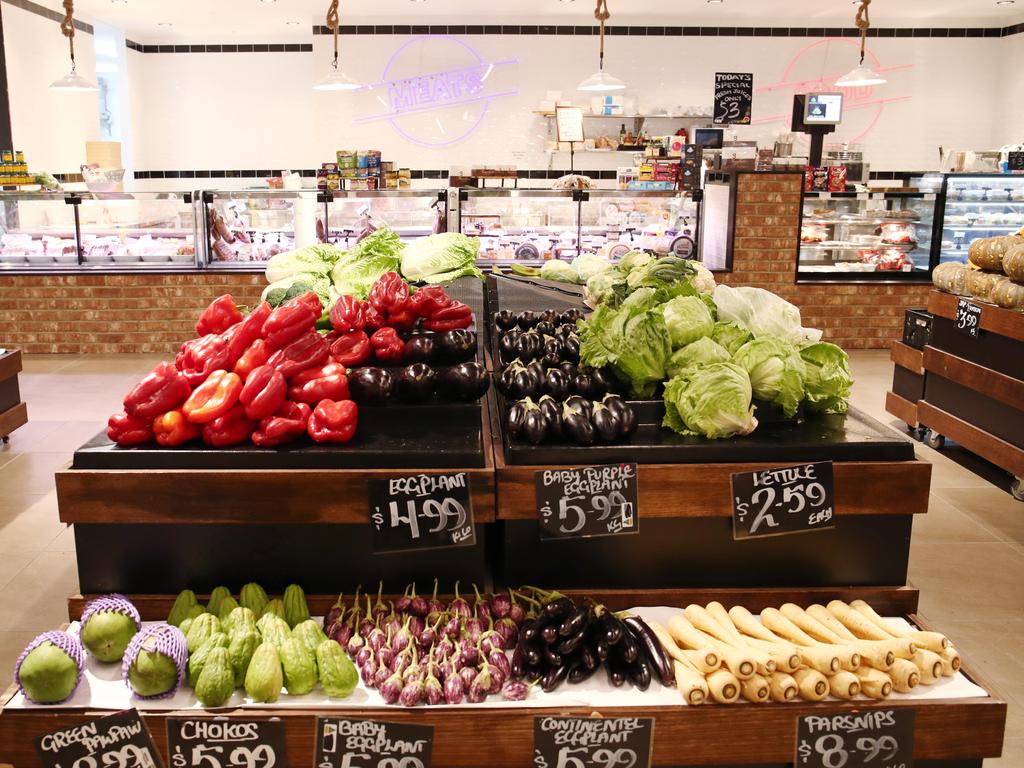
A Coles spokeswoman said the price of fresh produce paid by customers was influenced by many factors.
“The shelf price includes the price we pay our suppliers in addition the cost of factors such as processing, transport, labour, packaging and other costs associated with getting a product ready to go on shelves for our customers to enjoy,” she said.
“We source our vegetables such as zucchinis across numerous growing regions. We have strong long-term partnerships with numerous vegetable growers across Australia, and we work closely with them when it comes to transparency on costs. Our price for zucchinis last week was around 38 per cent cheaper than last year due to availability in the market.”
Aldi declined to comment.
Mr Marsolino’s comments echo those of NSW farmer Guy Gaeta last year.
Mr Gaeta, who grows cherries and apples in Orange, also accused the supermarkets of ripping off consumers.
“Lemons are cheap as chips at the moment,” he said last June. “The supermarkets can buy them for $8 a box and sell them for $4.90 a kilo … they profit $82 per box.”
Mr Gaeta said it was “fair enough” prices increased on certain produce when it was scarce but too many items were being marked up when there was plenty around.
“It really cheeses me off in this country where we’ve got plenty of food, people can’t afford to buy fresh fruit and vegetables,” he said.
The average Aussie household spent $182 on their weekly grocery shop in October 2023, according to comparison website Finder’s Consumer Sentiment Tracker.
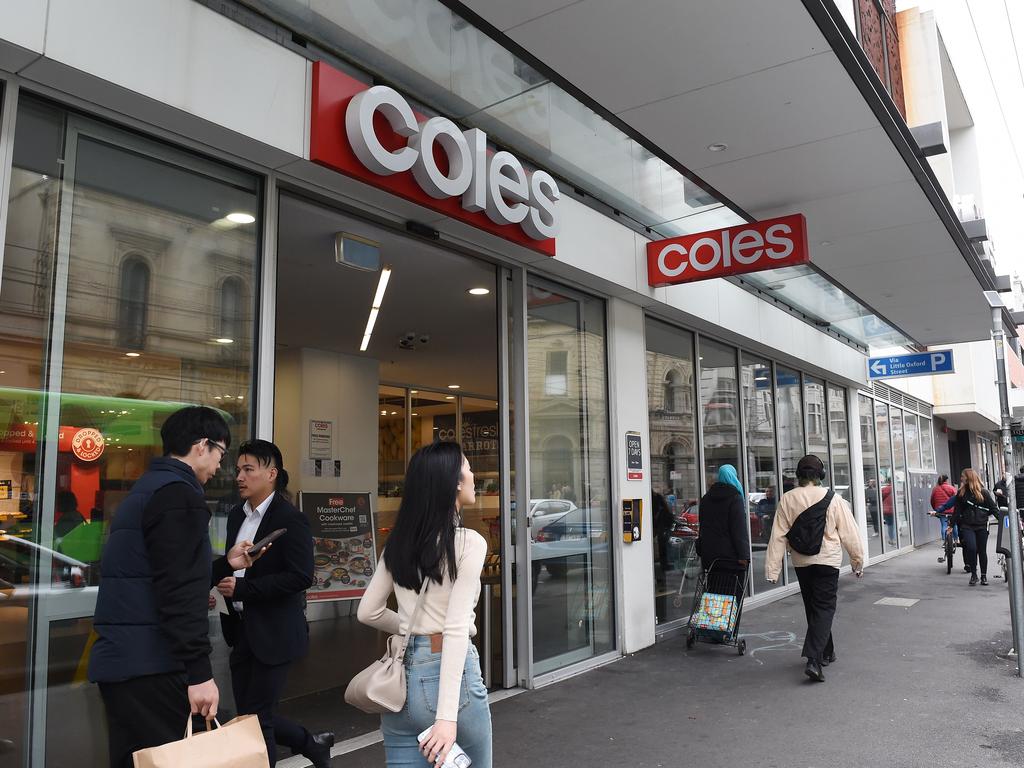
Two in five (39 per cent) respondents said their grocery shopping was causing them financial stress. That number doubled over the last three years, from 19 per cent in October 2020.
Finder analysed the cost of trolley of comparable items across Woolworths, Coles and Aldi, finding the most expensive shop cost 7 per cent more than the cheapest option.
The total price for a basket of 46 goods from Aldi came to $199.69, followed by Woolworths at $208.85 and Coles at $214.32.
“Grocery bills are putting significant strain on household budgets,” said Graham Cooke, head of consumer research at Finder.
“Food prices have continued to rise in recent years, with basic staples like cheese, bread, dairy and oils experiencing some of the biggest price rises of 10 per cent or more. Households are at breaking point, with many changing how and where they shop in order to put food on the table.”
Mr Cooke said there were ways to keep the cost of your shop down, such as always using a shopping list and going towards the end of the day when you are more likely to find discounted items.
Inflation increased 5.4 per cent over 12 months to September, according to the Australian Bureau of Statistics (ABS), driven by high petrol prices, the tight rental market and soaring electricity costs.
Food inflation eased to 4.8 per cent, down from a peak of 9.2 per cent in December 2022, as price rises across all food categories slowed while fruit and vegetable prices actually fell 6.4 per cent compared with 12 months ago.
The fall in fruit and vegetable prices was due to an unusually warm winter that improved yields for salad vegetables such as tomatoes, capsicums and lettuce and increased supply of berries, the ABS said.
Dairy and related products saw the biggest annual increase at 10.2 per cent, but this was down from a peak of 15.2 per cent in the previous quarter.






